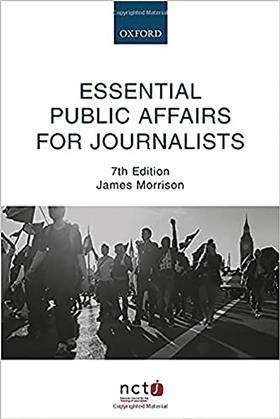Essential Public Affairs for Journalists (7th edition)
James Morrison
£27.99, OUP
★★★★✩
The connections between law and journalism are many. In addition to obvious examples of libel and contempt, the reporting of a court judgment, or the passage of legislation through parliament, can influence opinion and shape public discourse. Therefore, a book aimed primarily at journalists should also be of interest to lawyers. Justin Webb, a presenter of the Today Programme on BBC Radio 4, has called this book: ‘A work of extraordinary range and ambition that brilliantly succeeds in laying bare the workings of our nation.’ The range of the book is certainly impressive: there are chapters on the British constitution, environmental protection, local government and social care.

The impact of coronavirus is also covered in detail, resulting in an expansion of Chapter 6 (NHS) and Chapter 7 (Treasury). Other topical subjects include the debate on Scottish independence and the proposal to make voter ID compulsory in elections. To his credit, the author does not omit mention of the fact that voter ID has been the norm in Northern Ireland for many years.
As one might expect, Brexit makes an appearance despite the removal (in this edition) of Chapter 9 (EU) and a shorter glossary which no longer contains well-known phrases such as ‘enlargement’ and ‘subsidiarity’. A description of the MP surgery system identifies the risks inherent with such informal clinics when ‘customary civility [is] replaced by a more confrontational atmosphere’.
A review of the system of parliamentary democracy contains an illuminating summary of the passage of a bill through parliament. Chapter 13 (education) is particularly good at explaining the variety of schools now in existence, including foundations, academies, free schools and faith schools, and the role of ‘parent power’ in shaping these institutions. I expect the section titled ‘Holding Prime Ministers to account’ will be particularly well-thumbed in the coming months.
The author combines the careers of journalist and academic. This results in a work written with an engaging style and a strong sense of dogged impartiality. It is not surprising that this book has been referred to as the ‘journalists’ bible’.
Kevin McVeigh is a solicitor at Elliott Duffy Garrett, Belfast
































No comments yet